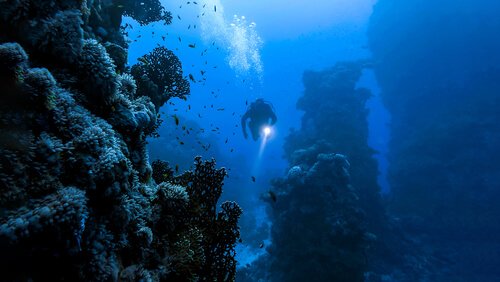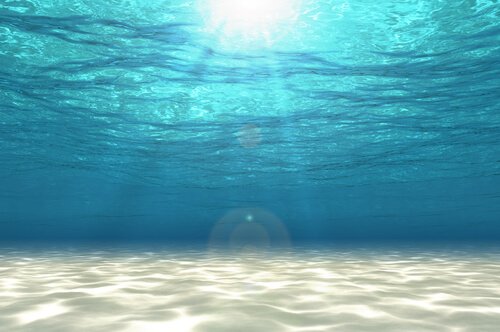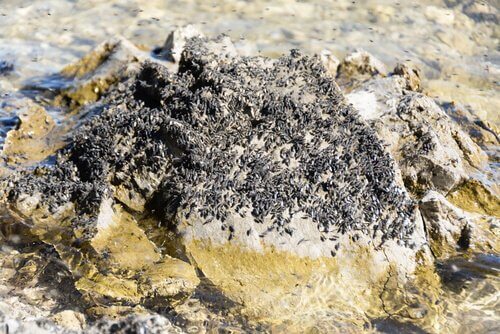Do Marine Insects Exist?

In recent years, there have been many surprising and unexpected scientific discoveries of several aquatic insects. However, almost all the species that experts identified lived partially or totally in freshwater areas. Therefore, the question remains if there are really any truly marine insects, ones that live in waters with high salinity.
In this article, we’ll learn a little more about aquatic insects in general, and discover whether there are any that can truly be called marine insects.
What are aquatic insects like?
Aquatic insects are species of insects that live totally or partially in aquatic ecosystems. That means they live their entire lives, or specific stages of their lives, in different types of bodies of water.
Currently, experts estimate that known aquatic insects make up 3 to 5% of all the insect species on the planet. Despite the small relative percentage, scientists have been able to recognize more than 10 orders of numerous aquatic insect species.
Although they have a lot of diversity in their morphology and habitats, all aquatic insects came from terrestrial ancestors. Thanks to some adaptive evolution in their anatomy and physiology, these species have been able to adapt their bodies to aquatic ecosystems.
Many species of aquatic insects can live their entire lives underwater. However, some of the known species only live in aquatic ecosystems during their larval stage, as they develop. Some of them represent a serious warning for public health, like mosquitoes.
How can insects survive in water?
Like we said before, aquatic insects evolved from terrestrial ancestors who weren’t made to survive in water. Therefore, living in aquatic ecosystems has required profound changes at their anatomical, physiological and behavioral levels.

Of course, the most fundamental change took place in their respiratory system. Terrestrial insects are made to take in oxygen from the air. However, insects that live in water, logically, need to be able to get oxygen from the water and oxygenate their cells.
Currently, aquatic insects are able to capture dissolved oxygen in water. These species have developed tracheal gills, creating species with several tracheae.
However, there are also some species that need to go to the surface to absorb oxygen directly from the air. These may be the most primitive species since they can’t live completely submerged. They still depend on the terrestrial environment to breathe.
In both cases, it’s common to see a plastron composed of several hydrophobic spines. These spines are located around the spiracles, which are small external holes known as ‘vents’. Together, they create a respiratory system that acts like gills.
Are there marine insects or not?
So, now we know that insects were able to adapt themselves to a life in aquatic environments. However, we still have to answer the question as to whether there are marine insects on our planet or not.
The vast majority of insects live only in freshwater bodies. However, there are some species that have managed to adapt to waters with high salinity; they live mainly on the marine coasts.

An example is the Ephydra hians species, which lives in the Dead Sea with very high salt concentrations. They’re more commonly known as ‘alkaline fly’ and are living proof that marine insects exist.
Why aren’t there more insects in the sea?
As you know, insects can reproduce very easily and have the incredible ability to adapt to different ecosystems. So, it makes sense that we would wonder why there aren’t more marine insects.
Unfortunately, there is still no consensus to explain this phenomenon. However, many scientists suggest that it’s because the sea is a very inhospitable environment for insects.
Since there are so many animals in the sea, insects would have an enormous amount of predators. Also, they would have to fight over territory with other species that were previously adapted to this environment, which would be a clear disadvantage.
Additionally, you have to keep in mind that breathing in salt water requires a huge evolutionary adaptation in the respiratory system. If you look at the complexity of marine fish and crustaceans’ bodies, you’ll see these adaptations.
Profound changes had to take place in their anatomy and physiology for beings to go from terrestrial to marine.
According to experts, these are the main reasons why the vast majority of aquatic insects live in freshwater. Because of this, there are very few known marine insects on our planet.
